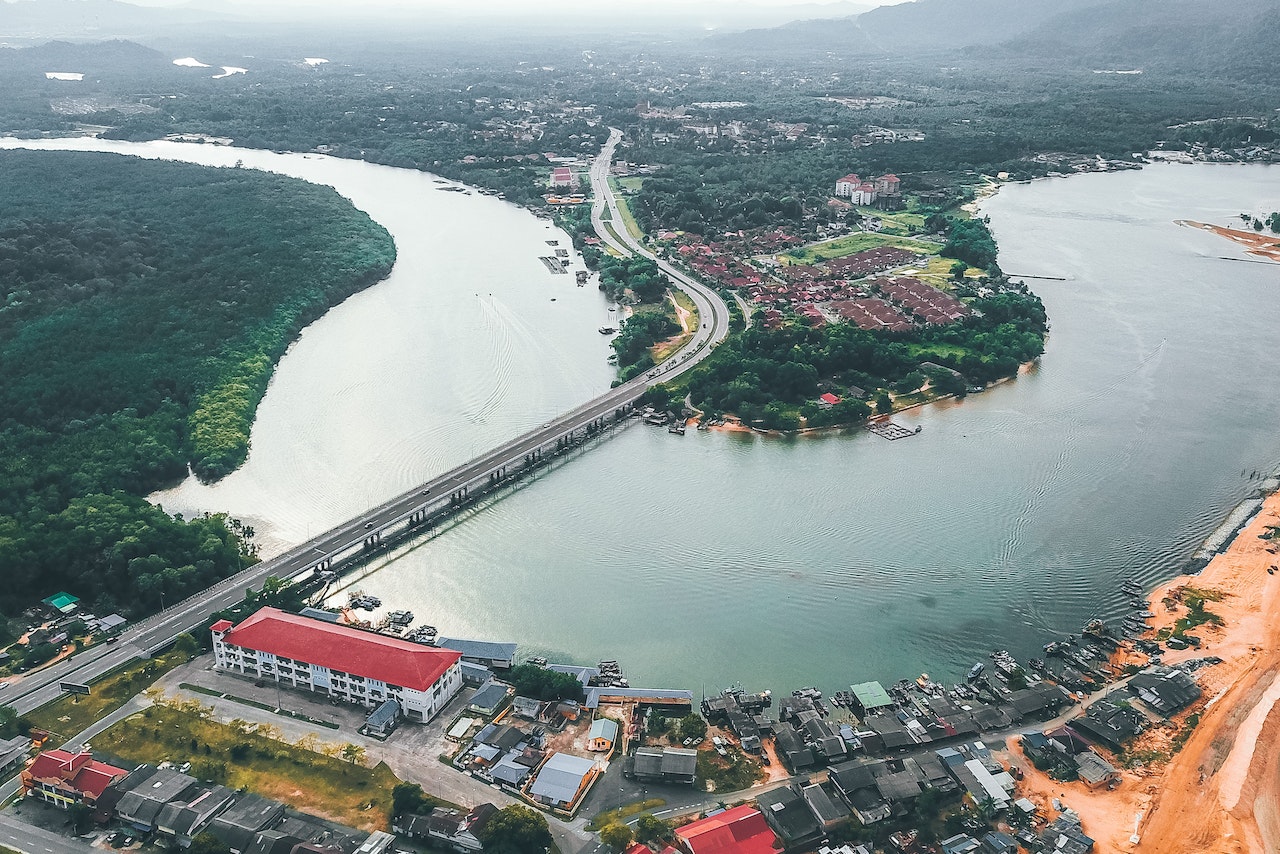Water scarcity has emerged as a pressing global issue, with far-reaching consequences for human well-being and environmental sustainability. This article explores the causes, impacts, and potential solutions to the global water crisis.
By employing an objective and data-driven approach, we aim to analyze the root causes of this crisis, highlighting its devastating impacts on various sectors.
Furthermore, we will examine innovative technologies for water conservation, policy and governance solutions to address the crisis at national and international levels, while also emphasizing the significance of collaborative efforts in achieving sustainable water management.
Key Takeaways
- Population growth and unsustainable agricultural practices are straining water resources.
- Inadequate infrastructure and climate change are hindering access to safe drinking water.
- Water scarcity has devastating impacts on health, agriculture, and industries.
- Innovative technologies, policy and governance solutions, and international collaborations are needed to address the global water crisis.
The Root Causes of the Global Water Crisis
The root causes of the global water crisis can be attributed to a combination of factors such as population growth, unsustainable agricultural practices, inadequate infrastructure, and climate change.
Economic factors play a significant role in exacerbating the crisis. Rapid population growth has led to increased demand for water resources, straining already limited supplies.
Unsustainable agricultural practices, driven by economic incentives, contribute to water scarcity through excessive irrigation and pollution from agrochemicals.
Inadequate infrastructure, particularly in developing countries with limited financial resources, hinders access to safe drinking water and proper sanitation facilities.
Climate change further compounds these issues by altering precipitation patterns and increasing the frequency of extreme weather events like droughts and floods.
Addressing these root causes requires a multifaceted approach that includes sustainable agricultural practices, improved water management strategies, investment in infrastructure development, and mitigation efforts to combat climate change.
The Devastating Impacts of Water Scarcity
Evidently, water scarcity has severe repercussions on various aspects of society and the environment.
Waterborne diseases:
- Limited access to clean water leads to an increased risk of waterborne diseases such as cholera, dysentery, and typhoid fever. These diseases disproportionately affect vulnerable populations, leading to high mortality rates.
- Inadequate sanitation facilities further exacerbate the problem by facilitating the transmission of pathogens.
Economic implications:
- Water scarcity hampers agricultural productivity, resulting in reduced crop yields and food shortages. This creates a vicious cycle of poverty and malnutrition.
- Industries that heavily rely on water face significant challenges in production processes and may incur higher costs due to limited availability.
To mitigate these impacts, solutions must be implemented at multiple levels.
Improved sanitation infrastructure and access to clean drinking water can significantly reduce waterborne diseases. Additionally, sustainable agricultural practices like efficient irrigation systems and crop diversification can help alleviate economic consequences.
Collaborative efforts involving governments, NGOs, communities, and international organizations are crucial for addressing these challenges effectively and achieving global water security.
Innovative Technologies for Water Conservation
Innovative technologies play a crucial role in enhancing water conservation efforts. Smart irrigation systems are one such technology that optimizes water usage in agricultural practices. These systems use sensors and weather data to determine the precise amount of water required for crops, reducing unnecessary irrigation and minimizing water wastage. Studies have shown that smart irrigation can save up to 50% of water compared to traditional methods.
Water recycling is another innovative technology that contributes to water conservation. Through advanced treatment processes, wastewater can be treated and reused for various purposes like industrial cooling or landscape irrigation. This reduces the demand for freshwater resources and helps conserve water.
Implementing these technologies on a larger scale can significantly contribute to sustainable water management and address the challenges posed by the global water crisis.
Policy and Governance Solutions to Address Water Crisis
Policy and governance frameworks are essential for effectively addressing the challenges related to water scarcity and ensuring sustainable water management. These frameworks play a crucial role in establishing clear guidelines and regulations for water allocation, usage, and conservation. They also provide mechanisms for resolving conflicts over water rights and promoting community engagement in decision-making processes.
To achieve these goals, policy and governance solutions should consider the following:
- Water Rights: Ensuring equitable access to water resources is fundamental to address the global water crisis. Policies that recognize and protect the rights of all stakeholders, including marginalized communities, can help prevent social injustices.
- Community Engagement: Involving local communities in decision-making processes fosters a sense of ownership and enhances the effectiveness of policies. Community-led initiatives promote sustainable practices, raise awareness about water conservation, and create platforms for dialogue between different actors.
International Collaborations for Sustainable Water Management
International collaborations play a crucial role in promoting sustainable water management practices and addressing the challenges related to water scarcity.
Transboundary agreements facilitate cooperation between countries that share water resources, allowing for joint management and conservation efforts. These agreements aim to ensure equitable allocation of water and prevent conflicts over its use.
Furthermore, knowledge sharing among nations enables the transfer of expertise, technologies, and best practices in water management. By learning from each other’s experiences and successes, countries can develop effective strategies to tackle the global water crisis more efficiently.
International collaborations also foster innovation and research collaboration, leading to the development of new technologies for efficient water use and treatment.
Through these collaborative efforts, countries can work together towards achieving sustainable solutions for managing limited freshwater resources on a global scale.
Frequently Asked Questions
How Does Climate Change Contribute to the Global Water Crisis?
Climate change exacerbates the global water crisis by altering precipitation patterns, increasing evaporation rates, and intensifying extreme weather events. Climate change adaptation measures and improved water management strategies are essential for mitigating its impacts on water availability and ensuring sustainable water resources.
What Are the Health Risks Associated With Water Scarcity?
Water scarcity poses significant health risks, including the spread of waterborne diseases and malnutrition. Insufficient access to clean drinking water compromises hygiene and nutrition, leading to increased vulnerability to illnesses and a decline in overall well-being.
How Can Individuals Contribute to Water Conservation Efforts in Their Daily Lives?
Water saving techniques and community initiatives are essential for individuals to contribute to water conservation efforts in their daily lives. By adopting practices such as using efficient fixtures and participating in local water-saving campaigns, individuals can actively address the challenges of water scarcity.
What Are the Economic Consequences of Water Scarcity?
The economic implications of water scarcity are significant, as it affects various sectors such as agriculture, industry, and energy production. Water scarcity impacts productivity, increases costs, and can lead to conflicts over resources. Addressing this issue requires efficient water management strategies and investment in alternative solutions.
What Are the Potential Long-Term Effects of the Global Water Crisis on Biodiversity and Ecosystems?
The global water crisis has potential long-term effects on biodiversity and ecosystems, leading to the disruption of wildlife habitats and ecosystem functioning. This can result in a decrease in species diversity, loss of keystone species, and reduced ecosystem services.
Conclusion
In conclusion, the global water crisis is a pressing issue that requires immediate attention and action. The root causes of this crisis include population growth, climate change, pollution, and inefficient water management practices.
The impacts of water scarcity are devastating, affecting not only human health but also economic development and environmental sustainability. However, there are potential solutions to address this crisis.
Innovative technologies for water conservation, policy and governance reforms, as well as international collaborations can all contribute to sustainable water management. Overcoming the anticipated objection that these solutions may be costly and challenging to implement, data-driven evidence shows that investing in water conservation measures is essential for long-term economic growth and environmental stability.
By visualizing these ideas through informative graphs and charts showcasing the positive outcomes of implementing these solutions, it becomes evident that addressing the global water crisis is crucial for our future generations’ well-being.

